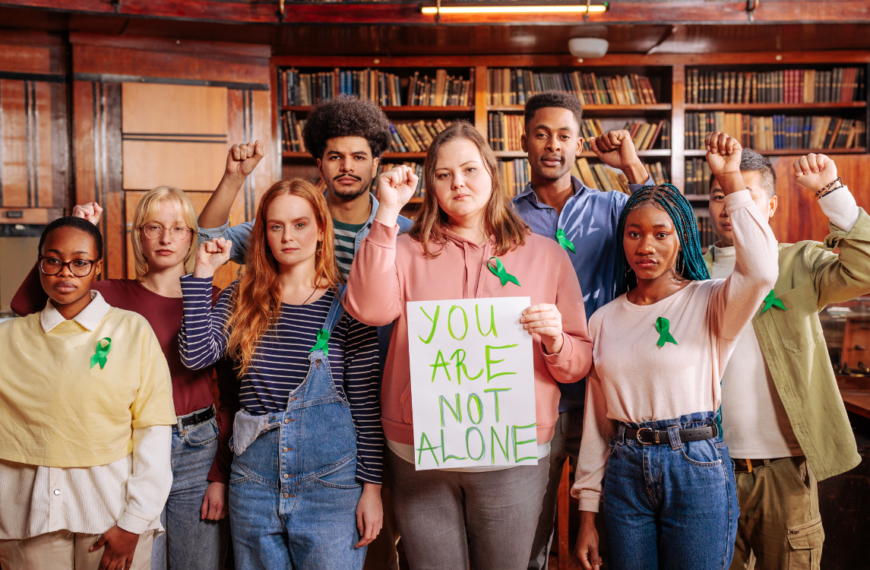Mental health is a crucial aspect of our overall well-being, yet it remains shrouded in stigma and misunderstanding. Many people hold misconceptions about mental health issues, which can hinder individuals from seeking help and support. This blog post aims to break down the myths surrounding mental health, promote understanding, and foster a more compassionate dialogue.
What is Mental Health?
Mental health encompasses our emotional, psychological, and social well-being. It affects how we think, feel, and act, playing a vital role in how we handle stress, relate to others, and make choices. Mental health is not merely the absence of mental illness; it is a dynamic state that can vary over time and is influenced by various factors, including genetics, environment, and life experiences.
Common Myths About Mental Health
- Myth: Mental Health Issues Are Rare
Reality: Mental health disorders are more common than many realize. According to the World Health Organization, one in four people will experience a mental health issue at some point in their lives. - Myth: People with Mental Health Issues Are Violent
Reality: The vast majority of individuals with mental health conditions are not violent. They are more likely to be victims of violence than perpetrators. This stereotype fuels fear and discrimination. - Myth: Mental Health Issues Are a Sign of Weakness
Reality: Mental health disorders are medical conditions that can affect anyone, regardless of strength or character. Just like physical illnesses, mental health issues require understanding and treatment. - Myth: Therapy is Only for ‘Crazy’ People
Reality: Therapy is a valuable resource for anyone seeking support, whether dealing with a mental health issue or navigating life’s challenges. Many individuals benefit from therapy as a form of personal growth. - Myth: You Can Just “Snap Out of It”
Reality: Mental health disorders are not a matter of willpower. They are complex conditions that often require professional intervention and treatment. Recovery is a process that varies for each individual.
The Importance of Mental Health Education
Breaking the stigma surrounding mental health begins with education. By understanding the facts and dispelling myths, we can create a more supportive environment for those who are struggling. Here are some reasons why mental health education is vital:
- Promotes Understanding and Empathy:
Educating ourselves about mental health helps us understand the challenges faced by individuals with mental health conditions. This understanding fosters empathy, compassion, and support. - Encourages Open Conversations:
Education encourages open dialogue about mental health, reducing the fear and shame often associated with discussing these issues. It creates a safe space for individuals to share their experiences. - Reduces Stigma:
By challenging misconceptions and promoting accurate information, we can work to dismantle the stigma that surrounds mental health. This shift in perception can lead to greater acceptance and support for those in need. - Increases Access to Resources:
Mental health education can guide individuals toward available resources, such as therapy, support groups, and crisis hotlines. Knowing where to seek help can make a significant difference in someone’s life. - Encourages Early Intervention:
Educated individuals are more likely to recognize the signs of mental health issues, both in themselves and others. Early intervention can lead to more effective treatment and improved outcomes.
How to Promote Mental Health Awareness
- Share Information:
Use social media, blogs, and community events to share accurate information about mental health. Use your platform to dispel myths and promote resources. - Encourage Conversations:
Create a safe space for discussions about mental health in your community, workplace, or school. Encourage open dialogues that normalize talking about mental health. - Get Involved:
Participate in or organize events that promote mental health awareness, such as workshops, seminars, or mental health fairs. Engaging in community efforts can foster a supportive environment. - Educate Yourself:
Take the initiative to learn more about mental health. Read books, attend workshops, or take online courses to enhance your understanding and awareness. - Support Mental Health Initiatives:
Advocate for policies and programs that promote mental health education in schools, workplaces, and communities. Support organizations that provide mental health resources and services.
Conclusion
Understanding mental health and breaking the stigma surrounding it is essential for fostering a supportive and compassionate society. By dispelling myths and promoting education, we can create an environment where individuals feel empowered to seek help and support without fear or shame. Remember, mental health is a vital aspect of overall well-being, and we all play a role in supporting one another on this journey. Together, we can break down the barriers and build a more understanding and inclusive community.


















